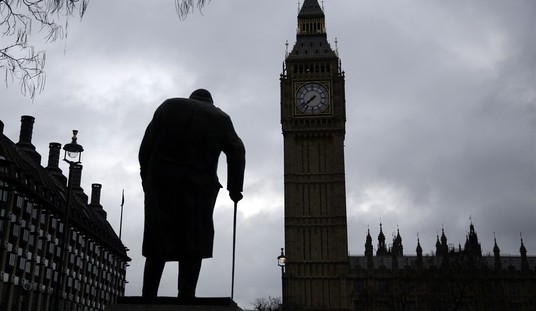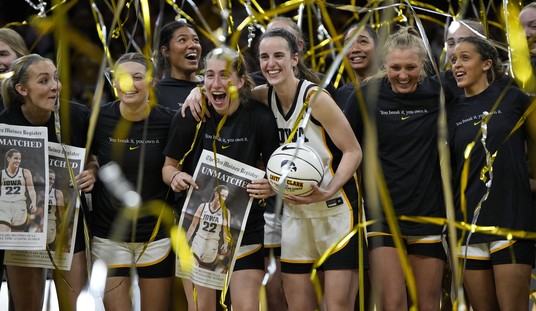Some established authors no longer intend to submit their manuscripts for publication. With the advent of new print-on-demand and digital services, they are going to publish books themselves. The Los Angeles Times cites one big factor for the shift: authors get to keep a bigger percentage of royalties. “Joe Konrath can’t wait for his books to go out of print. … That way he’ll be able to collect 70% of the sale price, compared with the 6% to 18% he receives from Hyperion.”
The gates and the gatekeepers, says the LA Times, are beginning to fall.
For more than a century, writers have made the fabled pilgrimage to New York, offering their stories to publishing houses and dreaming of bound editions on bookstore shelves. Publishers had the power of the purse and the press. They doled out advances to writers they deemed worthy and paid the cost of printing, binding and delivering books to bookstores. In the world of print, few authors could afford to self-publish.
The Internet has changed all that, allowing writers to sell their works directly to readers, bypassing agents and publishers who once were the gatekeepers.
Maybe Joe Konrath can go direct to his audience. But he’s got a reputation. Authors without an established readership base face a chicken and egg problem. Nobody buys their books because nobody knows about them, and nobody knows about them because nobody has yet bought their books. New print on demand services like Createspace and Amazon’s Kindle have only solved the self-publisher’s logistics and distribution problem, but they have not solved the self-publisher’s more fundamental problem, which is marketing.
The fact that an author can get his title listed on Amazon achieves surprisingly little. It is simply the equivalent of getting your website spidered by Google. Any damned fool can do that. You wind up on the list all right. But just as in the Google search, unless you are is on the first page of items returned by the engine then to all intents and puposes you are not visible users of the engine at all. Sites ranked 15,719th on a Google search are not better off than those ranked 157,190th. They are equally obscure.
From the readers point of view the market-making problem consists of finding the good books in a mountain of new material. How do you find the good stuff. Answer: you watch Oprah or go to the bookstore and buy the stuff displayed in front. The LA Times says, “with millions of titles potentially flooding the market, readers will have to rely more on external cues to guide their purchases, whether it’s a favorable review from a celebrity, a tip from a social-media contact or the backing of a major publisher.”
But from the author’s point of view the market-making problem is somewhat different. Extending the Google search analogy, the author’s challenge is to find that combination of search terms for which their book goes to the top rank of results. In the world of the Long Tail, the producer’s problem is finding his niche. In other words, given a book, the author’s problem is how to find the market that likes it and reach out to it.
Indeed, the challenge in a world where anyone can publish a book is getting people to pay attention.
In a blog post titled “Moving on,” about his decision to self-publish, Godin wrote that “my mission is to figure out who the audience is, and take them where they want and need to go, in whatever format works.” …
Last year, Bear and another bestselling science fiction author, Neal Stephenson, teamed up to create “The Mongoliad,” a subscription-based historical novel based on the conquests of Genghis Khan. The authors, along with about half a dozen other writers, take turns writing chapters, which are published weekly on http://mongoliad.com/ and on Apple’s iPad and iPhone devices.
One of the services missing from the Createspace and Kindle platform are reports that allow an author to do that. That is a major limitation. A technical architect for a major software company asked me over the Christmas if I was happy with the customer information provided by either platform. I said “no. They provide only aggregates. You don’t even get to see the geographical distribution of your buyers.” He nodded sagely. And you can see why. The great benefit to starting something like the “Mongoliad” is that Stephenson and Bear get to track their customer preferences. They get to understand their market and in a sense, get a chance to own it.
Compare that to an author who cannot get that information. He’s blind. But don’t worry, Amazon is now handing authors a shotgun.
Recently Amazon wrote to say that persons who purchased Kindle editions of books were eligible to legally lend them to other readers. “We are excited to announce Kindle book lending (http://www.amazon.com/kindle-lending). The Kindle Book Lending feature allows users to lend digital books they have purchased through the Kindle Store to their friends and family. Each book may be lent once for a duration of 14 days and will not be readable by the lender during the loan period.” Interestingly enough, those who opted for the 70% royalty program could not opt out of the lending program. Those who were on the 35% program could however, refuse to participate. That’s because the lending program essentially creates a “buy one take one” sales situation and halves the price of the book (i.e. 70%/2 = 35%). But the upside for budding authors is that it can potentially double their readership without permanently marking down the price of their books. That means their marketing reach potentially doubles. They still can’t focus, sniper-like on their market. But at least they’ve got a blunderbuss and with any luck, will hit something.
And that’s a help. For starting authors volume, not immediate dollar royalties, is arguably the most important long term factor in determining the long term prognosis of a book. If a piece of music or written work is ever going to “go viral” it is volume that is the critical element. Without volume you are dead in the water — permanently. Unfortunately for those on the Amazon platform, it is the publisher, not the author, that will capture the all-important information about the market’s preferences from the blunderbuss. It is Amazon Kindle and Createspace that will know the answer to the question, “what are the search terms that float this book to the top of the pile”. Unless you are Greg Bear and Stephenson, then you’re S.O.L.
Yet despite these problems the Fall of the Gatekeepers is probably a good thing. Enterprising techies and entrepreneurs will eventually find ways to solve the problems of allowing the audiences and authors to find each other. Competition may eventually force Amazon to share its data. But even now the immediate effect has probably been to increase the absolute amount of quality product available to the consumer. There’s a lot of good stuff out there, even if it is had to find. The quality standards of the pros and the amateurs, is in certain limited sectors, beginning to converge. It is not that the pros are getting worse but that the amateurs are getting better.
Tools which until recently were the exclusive preserve of studios and high-end publishers are now migrating downwards into consumer hands. Whether the field is music, writing or video, the potential for mass art was never greater than it is today. The irony is that it will have come about not as a result of grants to “artists” but through the operation of crass consumer capitalism. Consider one amateur, for example. John Gawkowski, “being a totally amateur musician, but a professional “lover of music,” thought he would record an album of cover songs and put them on the Internet. That’s essentially like a home movie. But today’s home movies ain’t what they used to be. Gawkowski
decided to embark upon a personal project of recording an album of cover songs. I wanted to select a few of the songs that had meant an awful lot to me back when I was learning how to play guitar and record them as a gift to my family and my friends, especially for those folks who so many years ago, had endured countless hours sitting in cheesey bars dutifully telling me “you sound really good tonight john!!”
That’s all he meant it to be, but in so doing he demonstrated something else: how perilously close to the Real McCoy an amateur can come in the first decades of the Twenty First century. “Art,” Karl Marx wrote, “is always and everywhere the secret confession, and at the same time the immortal movement of its time.” Che Guevara believed this high achievement could only be achieved under Communism. “The individual will reach total consciousness as a social being, which is equivalent to the full realization as a human creature, once the chains of alienation are broken. This will be translated concretely into the reconquering of one’s true nature through liberated labor, and the expression of one’s own human condition through culture and art.”
He would have been astounded to learn that it would have been achieved, not under the Dictatorship of the Proletariat in Cuba, but on YouTube.
[youtube 3fCq7jzd_aY?fs=1&hl=en_US]
Link to Wretchard’s novel “No Way In” print edition
Link to Wretchard’s novel “No Way In” Kindle Edition”









Join the conversation as a VIP Member